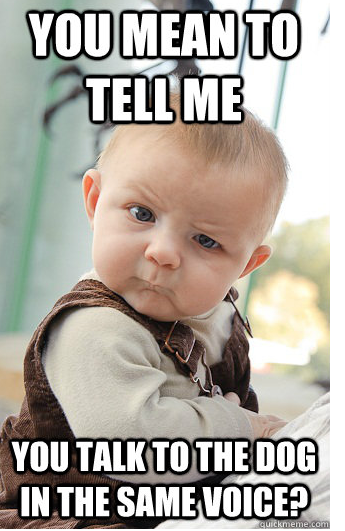 Source: bing.com
Source: bing.comTable of Contents
Introduction
Baby talk, also known as infant-directed speech or motherese, is the way adults speak to infants and young children. It involves using a higher pitch, exaggerated intonation, and simplified vocabulary. It is a universal phenomenon that seems to be hardwired into human behavior, but some people believe that baby talk can hinder the development of language skills in children. In this article, we will explore the question: does baby talk stunt the development of language development?
What is Baby Talk?
As mentioned earlier, baby talk is the way adults speak to infants and young children. It is characterized by a high-pitched voice, exaggerated intonation, and simplified vocabulary. Parents and caregivers use baby talk to engage with their infants and help them learn language. Baby talk is a natural way to communicate with babies because it captures their attention and helps them learn the rhythms and patterns of language.
Does Baby Talk Stunt Language Development?
There is no evidence to suggest that baby talk stunts language development. In fact, research suggests that baby talk can help infants learn language more quickly. A study conducted by researchers at the University of Washington found that infants who were exposed to more baby talk had larger vocabularies at 14 months of age than infants who were exposed to less baby talk. Another study found that infants who were exposed to more baby talk had better language skills at 2 years of age than infants who were exposed to less baby talk.
Why Do Some People Think Baby Talk Stunts Language Development?
Despite the evidence that baby talk can help infants learn language, some people believe that it can hinder language development. One reason for this belief is that baby talk uses simple vocabulary and grammar, which is not representative of the language that infants will encounter in the real world. However, research suggests that infants are able to distinguish between baby talk and adult talk and that they learn from both.Another reason why some people believe that baby talk stunts language development is that it can be overused. If parents and caregivers only use baby talk and do not expose infants to adult language, this could potentially limit their language development. However, this is not a common occurrence, and most parents and caregivers naturally switch between baby talk and adult talk.
What Can Parents Do to Help Their Children Learn Language?
While baby talk is not harmful to language development, there are things that parents can do to help their children learn language more effectively. These include:1. Engage in conversation with your child. Talk to them about what you are doing, what they are doing, and what is happening around them.2. Read to your child. Reading is a great way to expose children to new vocabulary and sentence structures.3. Expose your child to a variety of language. This includes both baby talk and adult talk, as well as different languages if possible.4. Repeat words and phrases. Repetition helps children learn and remember new words and phrases.5. Use gestures and facial expressions. Nonverbal communication can help children understand the meaning behind words and phrases.
Conclusion
In conclusion, baby talk does not stunt language development. In fact, it can help infants learn language more quickly. While it is important to expose infants to a variety of language, including both baby talk and adult talk, baby talk is a natural and effective way to communicate with infants.
Frequently Asked Questions
Q: Is baby talk harmful to infants?
A: No, baby talk is not harmful to infants. In fact, it can help them learn language more quickly.
Q: Can overusing baby talk limit language development?
A: While overusing baby talk could potentially limit language development, this is not a common occurrence. Most parents and caregivers naturally switch between baby talk and adult talk.
Q: What can parents do to help their children learn language?
A: Parents can engage in conversation with their child, read to them, expose them to a variety of language, repeat words and phrases, and use gestures and facial expressions.
Q: Does baby talk use incorrect grammar?
A: Baby talk uses simplified grammar, but it is not incorrect. Infants are able to distinguish between baby talk and adult talk and learn from both.
Q: Is baby talk a universal phenomenon?
A: Yes, baby talk is a universal phenomenon that is found in all cultures and languages.
